

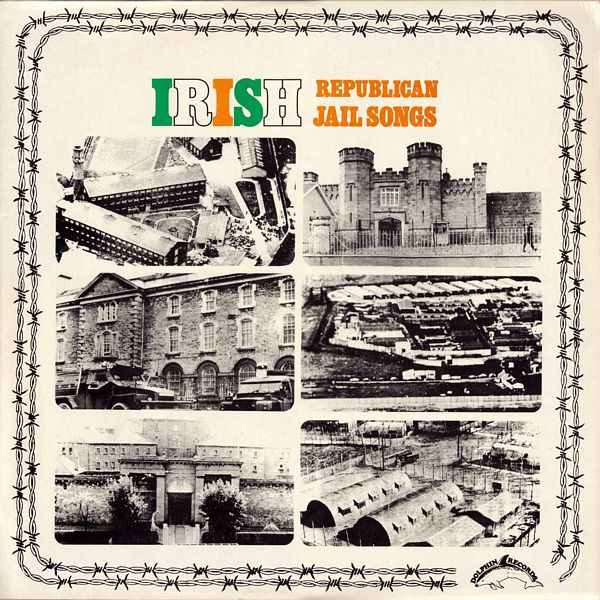 |
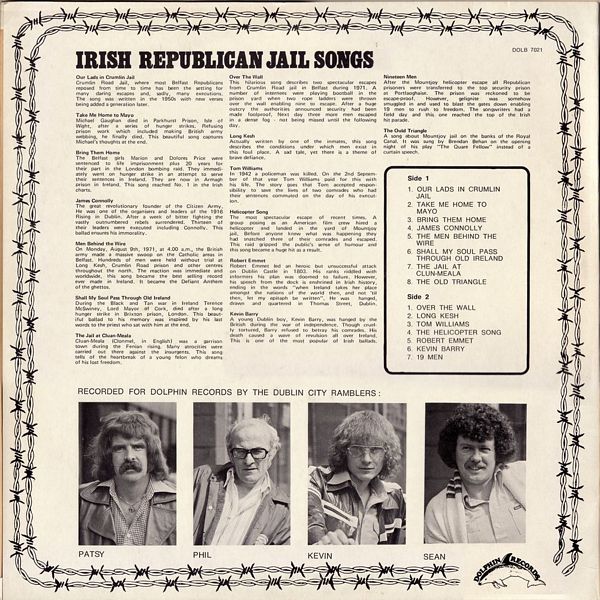
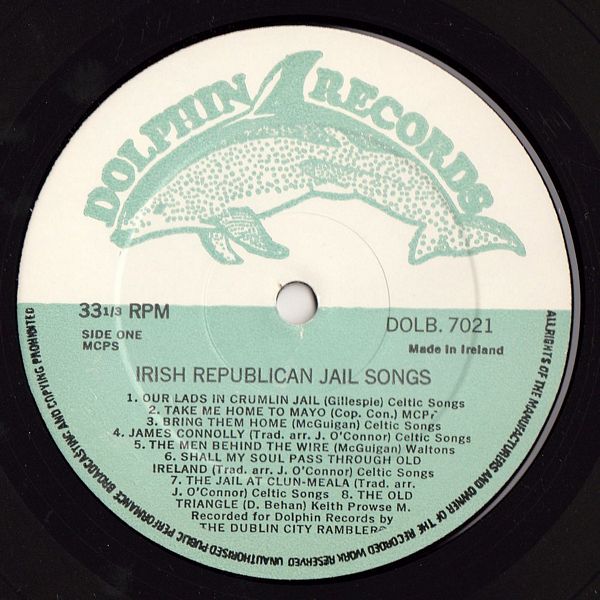
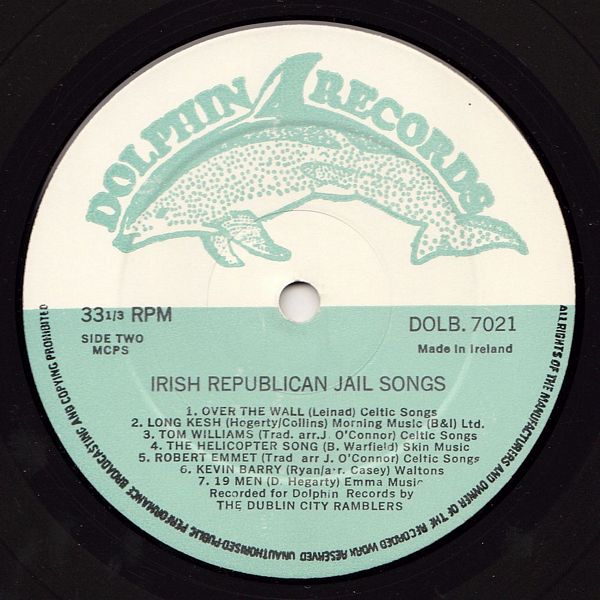
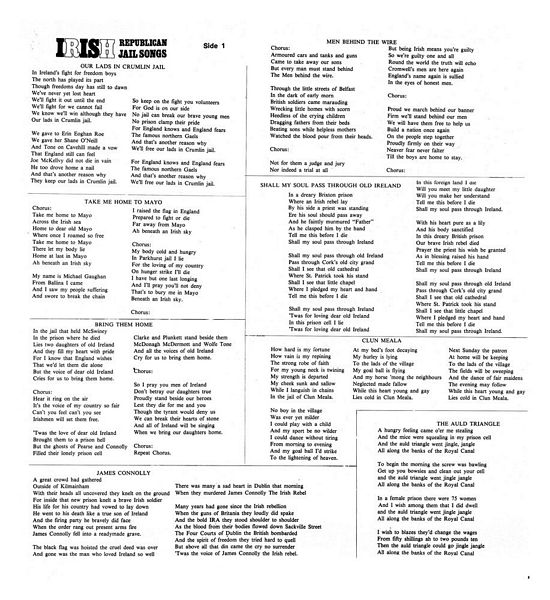
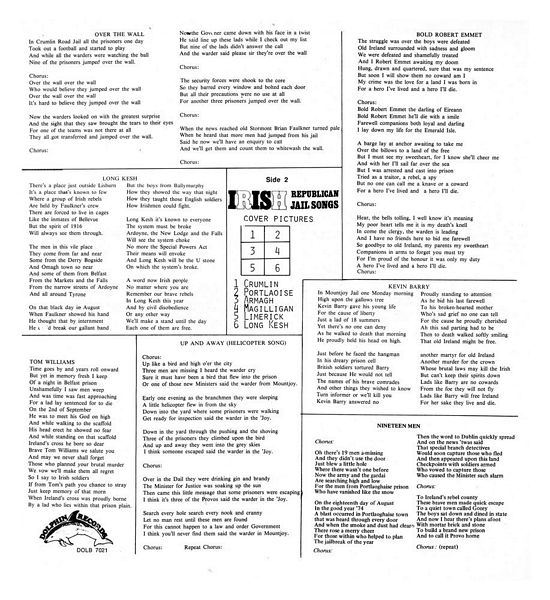
|
Sleeve Notes
Our Lads in Crumlin Jail
Crumlin Road Jail, where most Belfast Republicans reposed from time to time has been the setting for many daring escapes and, sadly, many executions. The song was written in the 1950s with new verses being added a generation later.
Take Me Home to Mayo
Michael Gaughan died in Parkhurst Prison, Isle of Wight, after a series of hunger strikes. Refusing prison work which included making British army webbing, he finally died. This beautiful song captures Michael's thoughts at the end.
Bring Them Home
The Belfast girls Marion and Dolores Price were sentenced to life imprisonment plus 20 years for their part in the London bombing raid. They immediately went on hunger strike in an attempt to serve their sentences in Ireland. They are now in Armagh prison in Ireland. This song reached No. 1 in the Irish charts.
James Connolly
The great revolutionary founder of the Citizen Army. He was one of the organisers and leaders of the 1916 Rising in Dublin. After a week of bitter fighting the vastly outnumbered rebels surrendered. Thirteen of their leaders were executed including Connolly. This ballad ensures his immorality.
Men Behind the Wire
On Monday, August 9th, 1971, at 4.00 a.m., the British army made a massive swoop on the Catholic areas in Belfast. Hundreds of men were held without trial at Long Kesh, Crumlin Road prison and other centres throughout the north. The reaction was immediate and worldwide, this song became the best selling record ever made in Ireland. It became the Defiant Anthem of the ghettos.
Shall My Soul Pass Through Old Ireland
During the Black and Tan war in Ireland Terence McSwiney, Lord Mayor of Cork, died after a long hunger strike in Brixton prison, London. This beautiful ballad to his memory was inspired by his last words to the priest who sat with him at the end.
The Jail at Cluan Meala
Cluan-Meala (Clonmel, in English) was a garrison town during the Fenian rising. Many atrocities were carried out there against the insurgents. This song tells of the heartbreak of a young felon who dreams of his lost freedom.
Over The Wall
This hilarious song describes two spectacular escapes from Crumlin Road jail in Belfast during 1971. A number of internees were playing bootball in the prison yard when two rope ladders were thrown over the wall enabling nine to escape. After a huge outcry the authorities announced security had been made foolproof. Next day three more men escaped in a dense fog — not being missed until the following day.
Long Kesh
Actually written by one of the inmates, this song describes the conditions under which men exist in this foul place. A sad tale, yet there is a theme of brave defiance.
Tom Williams
In 1942 a policeman was killed. On the 2nd September of that year Tom Williams paid for this with his life. The story goes that Tom accepted responsibility to save the lives of two comrades who had their sentences commuted on the day of his execution.
Helicopter Song
The most spectacular escape of recent times. A group posing as an American film crew hired a helicopter and landed in the yard of Mountjoy jail. Before anyone knew what was happening they had snatched three of their comrades and escaped. This raid gripped the public's sense of humour and this song became a huge hit as a result.
Robert Emmet
Robert Emmet led an heroic but unsuccessful attack on Dublin Castle in 1803. His ranks riddled with informers his plan was doomed to failure. However, his speech from the dock is enshrined in Irish history, ending in the words "when Ireland takes her place amongst the nations of the world then, and not 'til then, let my epitaph be written". He was hanged, drawn and quartered in Thomas Street, Dublin.
Kevin Barry
A young Dublin boy, Kevin Barry, was hanged by the British during the war of independence. Though cruelly tortured, Barry refused to betray his comrades. His death caused a wave of revulsion all over Ireland. This one of the most popular of Irish ballads.
Nineteen Men
After the Mountjoy helicopter escape all Republican prisoners were transferred to the top security prison at Portlaoghaise. The prison was reckoned to be escape-proof. However, gelignite was somehow smuggled in and used to blast the gates down enabling 19 men to rush to freedom. The songwriters had a field day and this one reached the top of the Irish hit parade.
The Ould Triangle
A song about Mountjoy jail on the banks of the Royal Canal. It was sung by Brendan Behan on the opening night of his play "The Quare Fellow" instead of a curtain speech.